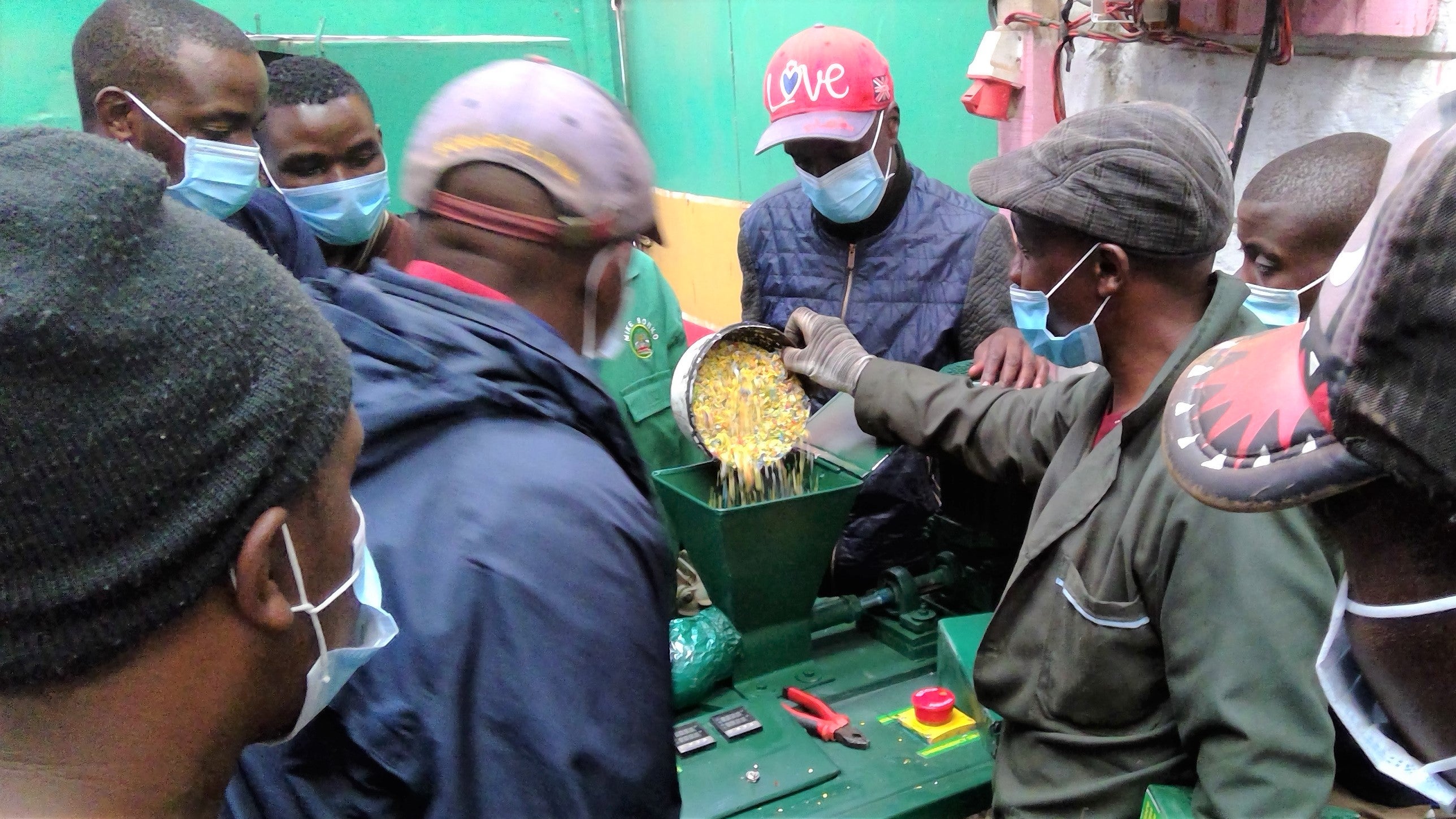Nairobi, November 2020 – As the number of COVID-19 cases surged in Kenya, UN-Habitat and partners moved quickly to begin the second phase of the Youth-led Emergency Response Nairobi’s Mathare informal settlement.
The project, which supports the continued implementation of 15 handwashing stations along with the introduction of programmes to counter Gender Based Violence and encourage E-learning among children, is supported by the Norwegian Embassy to Kenya, the Independent Medico Legal Unit (IMLU), Habitat Norway and Mathare Environmental Conservation Youth Group.
On 2 November, Kenya’s Health Ministry, IMLU and UN-Habitat began a six day training at the Mathare Environmental One Stop Centre to train the handwashing stations’ attendants. The attendants were taken through the guidelines on protecting themselves during their work, on using protective equipment and recognizing the symptoms of COVID-19 .

A training of trainers’ session for programmes related to combating Gender Based Violence (GBV), the E-learning children’s programmes and livelihoods took place at the Centre. The COVID-19 prevention measures on staying at home have led to an increase in gender-based violence. The programme, facilitated by IMLU, involves a survey in Mathare to establish the number of cases in the community and a resulting educational programme. The E-learning children’s programme for children aged 15 and under will support children affected by the closure of schools.
Many residents in Mathare relied on informal employment which has largely dried up during the pandemic. The International School of Kenya (ISK) and International Organization for Migration (IOM) donated a plastic recycling machine and a machine to produce moulds needed to process products to the Mathare Environmental One Stop Centre. In partnership with UN-Habitat, 15 young people took part in a three day training to learn how to operate the recycling machine, sort the plastics to be recycled based on their different types and make the various products from the recycled plastic.
“This training has been very useful in terms of the health information from the Ministry and use of the recycling machine, “ said Isaac Muasa Coordinator of the Mathare Environmental One Stop Centre. “ We extend our gratitude to the Norwergian Embassy, IMLU, Habitat Norway, IOM, ISK and UN-Habitat for helping us protect our community at this challenging time and provide employment.”